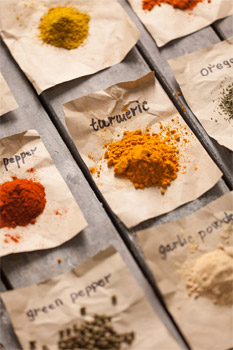Belinda Reynolds Antioxidants to Watch Interview

Belinda Reynolds Antioxidants to Watch Interview
Below are the latest antioxidants to watch:
ACAI
The acai berry is known as a superfood due to its antioxidant properties, and it may be helpful for a number of various health concerns.
Acai is a great source of antioxidants, fibre and heart healthy fats plus it contains a number of additional nutrients that are great for your health.
UBIQUINOL
Arguably one of the most powerful antioxidants, Ubiquinol, which is found naturally in the body, is the key to supporting energy in our cells and organs including the heart and liver.
Science has shown us that as we age or put our bodies under a significant amount of stress, our Ubiquinol levels decline often leaving us feeling fatigued, foggy, lacking in energy and even the inability to bounce back from heavy exercises.
Ubiquinol is the active and reduced form of Coenzyme Q10. In a major breakthrough after 10 years of research, Japanese Scientists have managed to synthesis Ubiquinol.
THERACURMIN
Curcumin- the yellow active plant pigment found in turmeric has been used as a health remedy for centuries and it is now being heralded as -the next Omega 3'.
Previous studies have indicated that curcumin exhibits poor absorbency in the body as it is fat soluble, however scientists have recently discovered a method to increase the bioavailability 27 times the normal rate with Theracurmin, an ingredient recently made available in the Australian market.
There are over 4000 scientific articles illustrating the benefits for inflammation conditions such as arthritis making Theracurmin a key ingredient to watch in 2015
Interview with Belinda Reynolds- Naturopath and Nutritionist
Belinda Reynolds graduated with an Honours Degree in Nutrition and Dietetics in 2003. She has been involved in the complementary medicine industry for nearly 15 years - 10 of these working for BioCeuticals as a Practitioner Sales Consultant, Team Leader, Presenter, Educator and Writer, with an involvement in Marketing and Product Development. Outside of this Belinda has spent time working in hospitals and lectured at the Australasian College of Natural Therapies.
Belinda's greatest passion is assisting practitioners in developing their knowledge by presenting new research in the area of integrative medicine. Now a mother of two, pre- and postnatal, infant and child health have evolved as subjects particularly close to her heart.
Question: What are antioxidants?
Belinda Reynolds: 'Antioxidant" is a term used to describe many substances that demonstrate antioxidant activity. Put very simply, antioxidants can prevent or delay certain types of cell, and DNA damage. This is because antioxidants prevent the harmful effects pro-oxidants and free radicals can induce throughout the body.
Antioxidant substances can be obtained through the diet, and are generally most concentrated in plant foods (such as vegetables and fruits, nuts and seeds).
 Question: Why are antioxidants important to include in our diets?
Question: Why are antioxidants important to include in our diets?
Belinda Reynolds: Different antioxidants work on different types of oxidative (i.e. damaging) substances, and throughout different areas of the body (e.g. some protect cell membranes, some work inside the cell, some work throughout the central nervous system, some work to protect cholesterol from damage, etc.).
In addition to this many antioxidants help to regenerate each other. Considering these points, it is very important to consume a diet that provides a broad array of different antioxidants, as this ensures protection for the whole body, and ensures the availability of these different substances so that they can work together in synergy to maintain good health.
Bright, and deep coloured vegetables and fruits are a great place to start when looking to maximise antioxidant consumption, as these are rich in antioxidant substances. Different antioxidants tend to display different colours, so the more different colours you can consume the better! Think dark green spinach and broccoli, red capsicum, purple beetroot, white cauliflower, orange sweet potato, red berries etc. Raw nuts and seeds are also a good source of antioxidants, so too is green tea.
Question: What are the latest antioxidants to watch?
Belinda Reynolds: Again, a blend of all antioxidants is very important. One of the most abundant antioxidants that exist in our cells however is glutathione. A depletion of this antioxidant has been associated with many different disease states, plus it also supports detoxification. A great recent development has been the approval of glutathione for sale in Australia, meaning that, for those that need it, it is available as a supplement. But, like other antioxidants, it does require the support of other nutrients to function, and therefore a healthy, plant food-rich diet will continue to be important.
Other interesting antioxidants attracting the attention of scientists include ubiquinol (the reduced or 'active" form of CoQ10), astaxanthin, and also tocotrienols and tocopherols (the eight different naturally occurring forms of vitamin E).
Question: What are the benefits of taking Ubiquinol?
Belinda Reynolds: Ubiquinol exerts numerous functions throughout the body. It assists the production of energy, fuelling many different cell types. Being a potent antioxidant, ubiquinol is also useful in supporting individuals with certain conditions associated with oxidative stress. Some examples of conditions/situations that can be linked to oxidative stress and/or ubiquinol depletion include male infertility, hypertension, diabetes, migraines and angina. It is therefore worth talking to a qualified healthcare practitioner to determine if this is something that may be useful for you.
Question: How can we boost the Ubiquinol in our system?
Belinda Reynolds: Although Ubiquinol is found naturally in the body, studies have shown that as we age, the concentration of Ubiquinol in the body decreases, indicating that it has a close relationship with ageing. Furthermore, if you are under stress or overly exert yourself physically, your Ubiquinol levels may become depleted, leaving you feeling foggy and/ or fatigued.
In these situations a supplement may be warranted, as achieving a therapeutic dose of ubiquinol that will make up for these deficits through diet alone can be near impossible.
Question: Is Ubiquinol similar to magnesium?
Belinda Reynolds: Ubiquinol and magnesium are in fact very different. Ubiquinol is a vitamin-like nutrient compound while magnesium is a mineral. However, they do each play a role in the production of energy, and are both substances that can be commonly depleted in individuals who exercise frequently and at high intensities, and those who are chronically stressed.
Because of this, both ubiquinol and magnesium can be supplements considered by athletes to assist in maximising energy production, supporting recovery, and performance.
Magnesium is also often referred to as 'the great relaxer". It is involved in muscle relaxation, and therefore if you are experiencing muscle cramps and/or spasms it may be an indication that your intake of this mineral is insufficient.
Question: What other supplements can boost our recovery?
Belinda Reynolds: BCAA: Branch Chain Amino Acids are three of the essential amino acids. This means they must be consumed through the diet as the body can not produce them.
The BCAAs are essential for muscle recovery and muscle protein synthesis. They also assist energy utilisation in the muscle cells. Research shows good effects for athletes when BCAAs are taken before, during and after training.
Protein Powder: Whey protein is well supported by scientific studies for its role in supporting muscle recovery. It provides many amino acids that perfectly match human needs. Certain brown rice proteins also provide a similarly great blend of amino acids for those individuals that are intolerant to dairy (the source of whey).
It is suggested that approximately 25g of protein is needed after a training session to support good muscle recovery. As the recovery process then continues for a period of approximately 12 hours following exercise, it is important to consume regular (e.g. every 3 hours) protein containing meals/snacks for this period, where possible.
What is Theracurmin? Theracurmin is a source of Curcumin which is absorbed at 27 times that of normal curcumin from turmeric. This is achieved due to Theracurmin's very small particle size. Curcumin is a potent anti-inflammatory, and this enhanced absorption means that a smaller quantity is required to achieve the desired anti-inflammatory benefits.
Whilst the inflammatory action of Curcumin has been shown in over 4000 scientific articles, a significant hurdle for scientists in the past has been its limited ability to be absorbed from the intestines.
Theracurmin has anti-inflammatory and antioxidant properties and it has been shown to assist in joint pain as well, being used by some as a treatment for arthritis.
Question: Can you talk us through a typical days diet, for you?
Belinda Reynolds: It can vary from day to day, depending on whether I am at work or at home with my children, however a good example would be:
Breakfast:
Smoothie made with strawberry whey protein (IsoWhey)and frozen mixed berries. or omelette with eggs, smoked salmon, spinach and dill.
Coffee
Morning snack:
Strawberries or blueberries with some almonds or a boiled egg, or avocado on multigrain corn cracker.
Lunch:
Stir-fry or salad made with a range of veggies (I use a 'spiraliser" to make vegetables such as carrot, zucchini, beetroot into noodles), quinoa and chicken or salmon.
Either poultry/meat/fish with at least 3 different coloured vegetables (e.g. broccoli, carrot, spinach, cauliflower, sweet potato, zucchini, cabbage, onion)
Interview by Brooke Hunter
MORE



